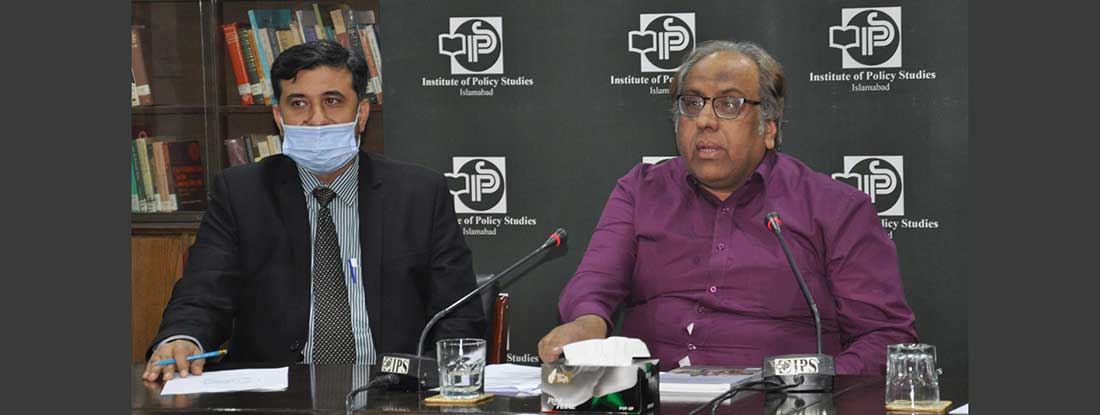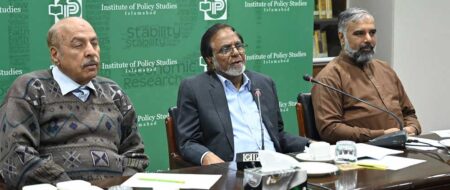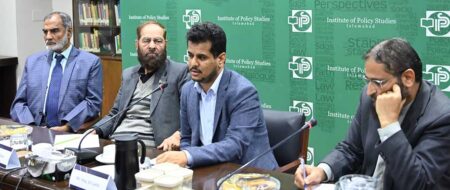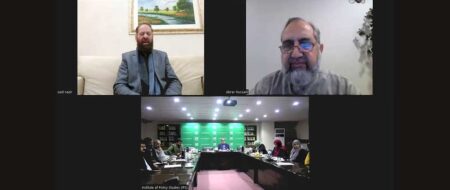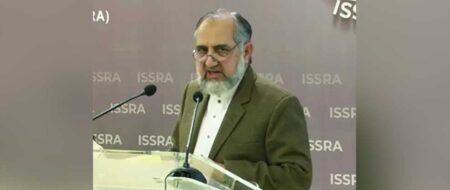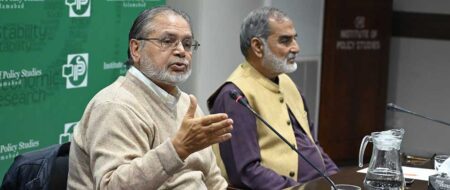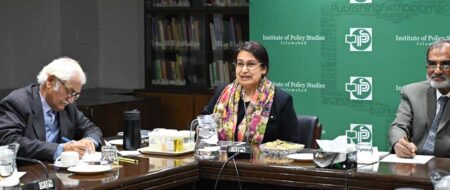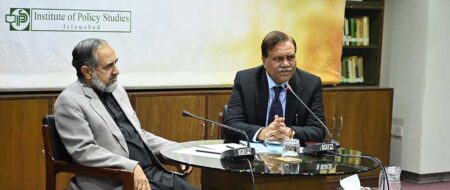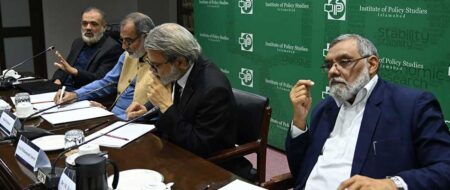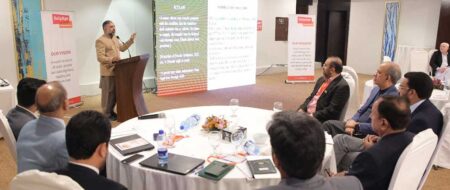‘Changing Patterns of Political Dynamics in Pakistan: Exploring Grassroots Social and Political Realities’
Urbanization, digital empowerment, increased religiosity, and increased citizen participation, among others, are some factors that significantly impact politics and society in Pakistan. Since all these actors come into play at all levels and dimensions, they also have implications on national politics, including voting trends as well as the outcome of the election itself.
A spotlight on this phenomenon was thrown by Nazeer Ahmed Mahar, founder and CEO of the Research Initiative (TRI), while taking a reference out of his recently launched study Changing Patterns of Political Dynamics in Pakistan: Exploring Grassroots Social and Political Realities, during an interactive session held at IPS on February 23, 2022.
The speaker apprised that as elaborated in his study, which is co-authored by Tarik Malik, Pakistan is an increasingly urbanized society exhibiting a continuous flux in the patterns of its socio-political life, and there are certain dynamics in the country’s social and political structures that not only bring changes in society but also in the political environment and its outlook.
Highlighting the role of youth, women, religion, ethnicity, education, overseas nationals, and media usage in the political scenario of Pakistan, the speaker reviewed that this diversity itself is an outcome of political implications, including gradual ethnicization of politics, the gradual decrease in caste persuasion, gender roles, religious perspectives and other dynamics brought on to the table by different elements.
The speaker also shared his findings regarding electoral turnout, voters’ participation, gender participation, political developments, and future electoral trends, while concluding that the discussed phenomenon in Pakistan is in a continuous flux demanding more study and analysis.


